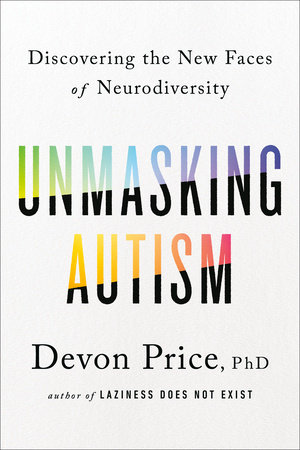In the latest developments in understanding autism, a groundbreaking perspective is emerging: autistic self-identification.
This innovative approach, championed by Devon Price, author of Unmasking Autism, proposes that individuals possess the autonomy to define their own identities without relying on psychiatric diagnoses.
At Asheville Family Counseling, we’ve noticed that an increasing number of our adult clients are identifying as neurodivergent and seeking referrals for testing.
However, in line with the principles of autonomy and empowerment, we’re encouraging individuals to consider an alternative approach. Rather than navigating the often long waits and considerable expenses associated with formal testing, we advocate for self-identification.
Autistic Self-Identification
Autistics hold the collective wisdom, organizing ability, insight, and political power to define who they are. No authority figure should have to sign off on their identities.
Further, because psychiatrists fail to diagnose such a large percentage of the Autistic population, many Autism researchers now fully accept self-identified Autistic adults within their subject pool.
Within the peer-reviewed journal Autism in Adulthood, self-identified Autistics often make up the bulk of the participant sample, and they have repeatedly been found to be indistinguishable from their formally diagnosed peers.
Ultimately, a growing body of research now also considers the presence of Autism-spectrum traits as qualifying for inclusion in many Autism studies.
This itself reveals that a formal diagnosis is hardly necessary, and that a psychiatric paradigm of accepting self-identification is inevitable.
Accessing Accommodations Without Gatekeeping
When considering the necessity of formal diagnosis for accessing accommodations, it’s crucial to understand the role of psychiatric professionals.
Contrary to popular belief, they’re not benevolent figures granting access to necessary supports. Instead, they often serve as gatekeepers, restricting access based on subjective criteria.
We need a new way forward. For example, at organizations like Humanity United, employees can identify themselves as neurodivergent and request any unique accommodation they need without supplying formal documentation.
This inclusive approach ensures that individuals can access any accommodation they need — things like the ability to skip workplace social events, a dimmer switch for their office lights, the ability to communicate with their boss over email rather than in person, or a more fidget-friendly chair.
Empowering Autistic Individuals
At Asheville Family Counseling, we fully support self-identification and eliminating gatekeeping, empowering Autistic individuals to access the understanding, accommodations, and support services they need. This paradigm shift not only promotes autonomy but also fosters a more inclusive and supportive society.
Credit: Ideas and insights in this blog were gleaned from Devon Price, author of ‘Unmasking Autism,’ as published in the recent article on Medium. Read the full article here.
* * *
If you’d like to find out more, click the button below and schedule a free, 15-minute call.
We’ll discuss how we may be able to help.

